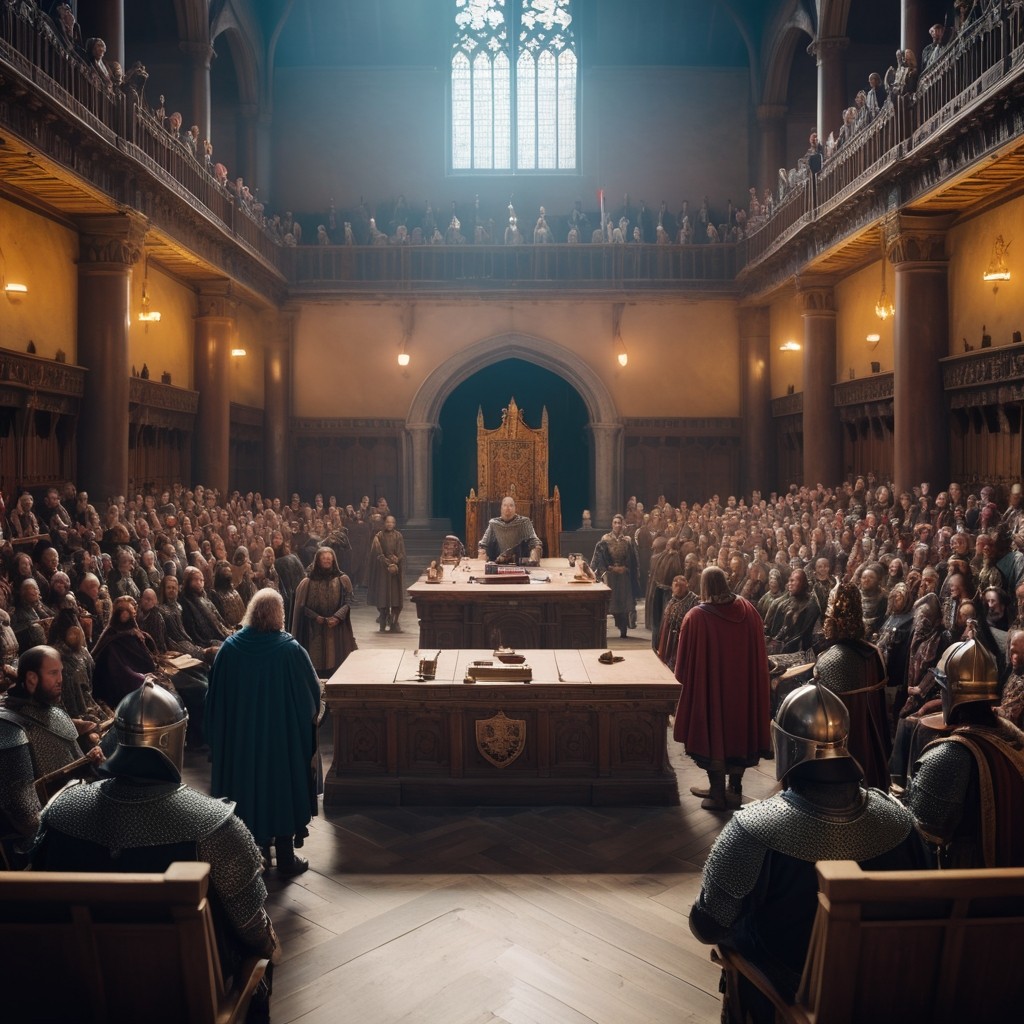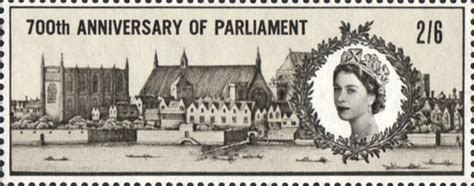
On this day, 20 January, seven hundred and sixty years ago in 1265. Simon De Montfort, Earl of Leicester, the leader of a group of barons rebelling against King Henry III, summoned England’s first parliament.
Since the days of the Saxons, English Kings had been counselled by groups of Lords, but this was the first time they gathered to determine how their country would be ruled.
England’s long march towards democracy had been given a great boost in 1215, when mutinous barons forced King John to sign Magna Carta, which stripped the king of his power of absolute rule, an event so momentous it reverberates still. There have been several attempts by those in power to restore absolute rule since 1215, and that urge by tyrants is evident today, but in the end, all have stumbled on the principles enshrined in the Great Charter.
John‘s son, Henry III, attempted to restore absolute rule. He led England into costly wars in France and raised taxes again and again. He also surrounded himself with imported favourites from Fance. By 1258 the barons had had enough, and forced the King to sign the Provisions of Oxford, which reduced the monarch’s powers still further by making the king submit all decisions to an advisory council consisting of 15 barons, chosen by twelve barons and twelve members of Henry’s Council, in a forerunner of Parliament.
Henry, needless to say, failed to comply by the restrictions the Provisions imposed and was soon ignoring the barons’ advice. De Montford began insisting on a permanent council and so began a dispute that festered for six years. Eventually they agreed to have King Louis IX of France act as arbitrator to settle their differences. Unsurprisingly, Louis said that he opposed limitations of royal power on principle and that the barons had no right to interfere with Henry or his government. In January 1264, at a gathering known as the Mise of Amiens, the French king annulled the Provision, leaving the barons no choice but to fight.
Incensed by Henry’s demands for more taxation, with England suffering widespread famine, the barons again launched a revolt, raising an army slightly larger than the King’s. As well as barons, contingents of armed tradesmen from London and other cities joined against the King, who further antagonised the ‘ordinary people’ when his courtiers broke up an amateur units’ drill parade saying that ‘bran-dealers, soap-boilers, and clowns were not fit for the profession of arms.’ The barons’ army, under Simon De Montfort, had quick success and had seized control of most of the south-east of England by the end of 1263.
De Montfort, once despised as one of the Francophile King’s favourites, had become Henry’s most implacable foe and the figurehead for his enemies. He long been something of a rebel and had alienated important allies by proposing to cut the power of the foremost barons as well as the monarch. The resulting tension gave Henry an opportunity and, with the help of the King of France, he managed to regain London and, after a short, uneasy peace, marched into the territories controlled by De Montfort in April 1264.
On May 14, 1264, in the climactic Battle of Lewes, Henry’s larger but ill-disciplined forces were defeated and he was captured and forced to re-instate the Provisions of Oxford, which limited his powers further and which have been described as England’s first constitution. Henry was reinstated but was little more than a figurehead.
In June 1264 De Montfort summoned a parliament of Knights and Lords from across the kingdom in a bid to consolidate this arrangement, it became clear that the people were wary of it and the humiliation of the King, still widely believed to have been appointed by Divine Right.
Meanwhile, Henry’s French wife, Eleanor, was preparing to invade England with French help. De Montfort knew that something dramatic had to be done if he was to keep control and so included burgesses (freemen or citizens) from all the cities of England to join the parliament gathered on 20 January 1265.
For the first time in history, a degree of power was passed from the feudal countryside into the growing towns, where people lived outside the control of the aristocracy. In a precedent lasting until the present day, and bringing in a philosophical shift about how a country should be governed, this marked the first parliament in the modern sense, for now alongside the Lords “commons” also made their views heard.
De Montfort, of course, was a politician and did not do this out of a belief in freedom and democracy but instead in a shameless exercise of political expediency. And once he had consolidated his own power, he began to amass a considerable personal fortune. As a consequence his popularity began to wane.
Unfortunately for De Montfort, Henry’s charismatic son Edward (Edward 1st – Longshanks) had escaped captivity and raised an army. They met at the Battle of Evesham and De Montfort was defeated, slaughtered and mutilated. The war finally ended in 1267 and England’s brief experiment with something approaching parliamentary rule was ended.
The precedent would prove harder to beat though, and by the end of Edward’s reign, the inclusion of townsmen in parliaments had become the unshakeable norm. Simon de Montfort’s parliament of 20 January 1265 is, therefore, a significant event in English/British history and has had a profound impact on the development of parliamentary democracy in our country.
Since 1265 we have, inevitably, many cases of tyrants who believe they have a divine right to rule try to restore absolutist government. We are seeing this today, right across the western world. Here in Britain, democracy has once again been captured by those who think that have a divine right and that the common folk have no right to be heard and so have introduced all manner of rules to prevent it being heard.
All this proves the old sayings that the price of freedom is eternal vigilance and that you can easily vote your way into serfdom – the only thing on offer – but you nearly always have to fight your way out of it.
We are not quite there yet, so we must take heed, we are part of a heritage that since Simon de Montfort’s day and before has regularly had to shed its own blood to fight its way out of serfdom. We need to take action now to prevent us having to do the same again.
And just maybe, 20 January 2025, 760 years after our first parliament to the day, will go down as the beginning of that action.
